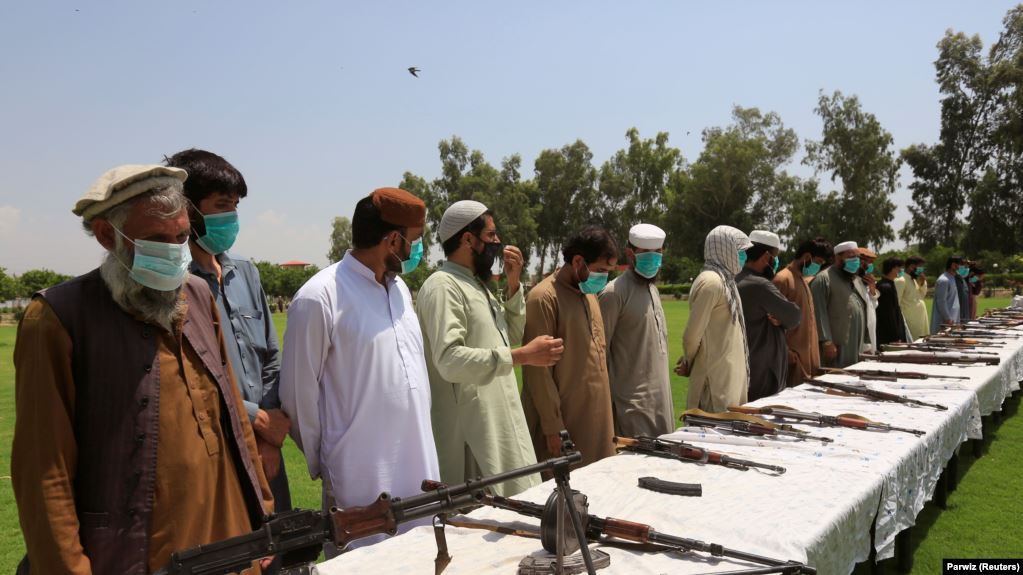Al-Qaeda's regional affiliate in Afghanistan maintains “close ties” to the Taliban and has an "enduring interest" in attacking U.S. troops, the Pentagon says in a new report.
Publish dateThursday 2 July 2020 - 09:48
Story Code : 213515
Under a February deal between the Taliban and the United States, the insurgents agreed to stop terrorist groups such as Al-Qaeda from using Afghanistan as a safe haven to plot attacks.
But in a report published on July 1, the Department of Defense said Taliban militants have continued to work with Al-Qaeda in the Indian Subcontinent (AQIS).
AQIS “routinely supports and works with low-level Taliban members in its efforts to undermine the Afghan government, and maintains an enduring interest in attacking US forces and Western targets in the region," the department said in a semiannual security assessment compiled for Congress.
Citing Al-Qaeda statements, the report said the group’s regional affiliate also “assists local Taliban in some attacks.”
The Pentagon report, titled Enhancing Security And Stability In Afghanistan, said that despite “recent progress” in the peace process in Afghanistan, AQIS “maintains close ties to the Taliban in Afghanistan, likely for protection and training."
It said that any "core" Al-Qaeda members still in Afghanistan are focused mainly on survival, and have delegated regional leadership to AQIS.
"AQIS's interest in attacking US forces and other Western targets in Afghanistan and the region persists, but continuing coalition [counterterrorism] pressure has reduced AQIS's ability to conduct operations in Afghanistan without the support of the Taliban," according to the report, which covers events during the period between December 1, 2019, to May 31 this year.
It comes after a United Nations report released a month ago said that Al-Qaeda and the Taliban "remain close, based on friendship, a history of shared struggle, ideological sympathy, and intermarriage."
The UN report added that the Taliban "regularly consulted" with Al-Qaeda during negotiations with the United States and "offered guarantees that it would honor their historical ties."
However, U.S. special envoy to Afghanistan Zalmay Khalilzad downplayed the findings, saying the report largely covered a period before the U.S.-Taliban agreement.
The deal is at a critical stage at a time violence in Afghanistan has continued since a three-day cease-fire at the end of May. The Afghan National Security Council said June 30 that, since February, the Taliban had on average staged 44 attacks per day on Afghan security forces.
Under the accord, the United States agreed to reduce its forces in Afghanistan from 12,000 troops to 8,600 by mid July. If the rest of the deal goes through, all U.S. and other foreign troops will exit Afghanistan by mid-2021.
But in a report published on July 1, the Department of Defense said Taliban militants have continued to work with Al-Qaeda in the Indian Subcontinent (AQIS).
AQIS “routinely supports and works with low-level Taliban members in its efforts to undermine the Afghan government, and maintains an enduring interest in attacking US forces and Western targets in the region," the department said in a semiannual security assessment compiled for Congress.
Citing Al-Qaeda statements, the report said the group’s regional affiliate also “assists local Taliban in some attacks.”
The Pentagon report, titled Enhancing Security And Stability In Afghanistan, said that despite “recent progress” in the peace process in Afghanistan, AQIS “maintains close ties to the Taliban in Afghanistan, likely for protection and training."
It said that any "core" Al-Qaeda members still in Afghanistan are focused mainly on survival, and have delegated regional leadership to AQIS.
"AQIS's interest in attacking US forces and other Western targets in Afghanistan and the region persists, but continuing coalition [counterterrorism] pressure has reduced AQIS's ability to conduct operations in Afghanistan without the support of the Taliban," according to the report, which covers events during the period between December 1, 2019, to May 31 this year.
It comes after a United Nations report released a month ago said that Al-Qaeda and the Taliban "remain close, based on friendship, a history of shared struggle, ideological sympathy, and intermarriage."
The UN report added that the Taliban "regularly consulted" with Al-Qaeda during negotiations with the United States and "offered guarantees that it would honor their historical ties."
However, U.S. special envoy to Afghanistan Zalmay Khalilzad downplayed the findings, saying the report largely covered a period before the U.S.-Taliban agreement.
The deal is at a critical stage at a time violence in Afghanistan has continued since a three-day cease-fire at the end of May. The Afghan National Security Council said June 30 that, since February, the Taliban had on average staged 44 attacks per day on Afghan security forces.
Under the accord, the United States agreed to reduce its forces in Afghanistan from 12,000 troops to 8,600 by mid July. If the rest of the deal goes through, all U.S. and other foreign troops will exit Afghanistan by mid-2021.
Source : Afghan Voice Agency(AVA)
avapress.com/vdcgqw9xnak9qn4.5jra.html
Tags
Top hits












